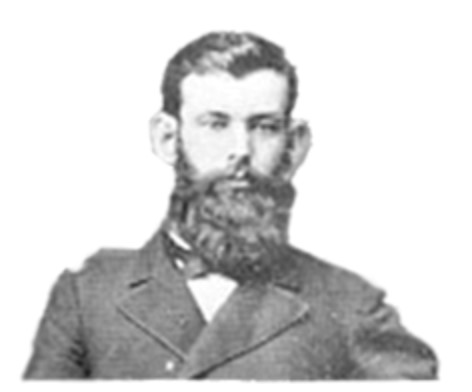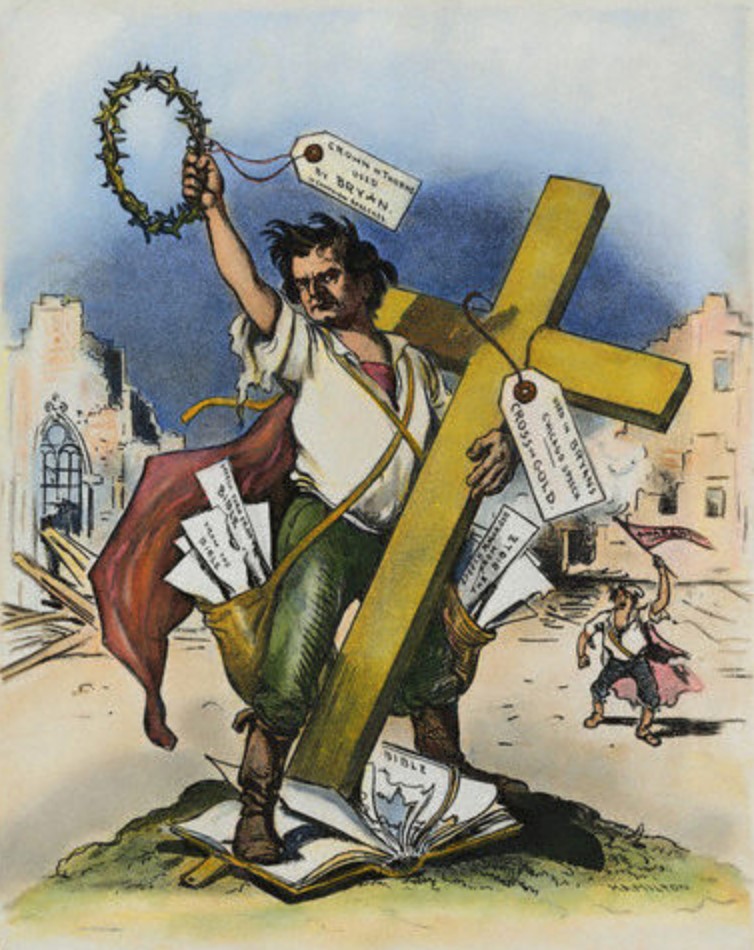The Martinsburg Herald
Posted by Jane Metters LaBarbara.March 1st, 2021
Blog post by Rachael Barbara Nicholas, WV National Digital Newspaper Project grant assistant, WVRHC
The Republicans of Berkeley County once bemoaned how difficult it was to edit a political paper when “the Republican backbone” in Berkeley “was weakened by Democratic domination.” This perceived difficulty did not prevent editors A. S. Goulden and John T. Reily from establishing the Martinsburg Herald in 1881. A thoroughly Republican paper, the Martinsburg Herald retained its original management until 1885, when Reily purchased Goulden’s interest in the paper and associated himself with George F. Evans, a manufacturer of cigars and wholesale dealer in tobacco. In addition to being a Republican paper, the Martinsburg Herald was “A Weekly Family Journal—Devoted to Home Interests, Local News, &c.” It followed a fairly consistent format: the first page contained literature, the second political reports, the third local news, and the fourth advertisements.

The Republican element of the Martinsburg Herald was secondary under Reily and Evans, but it was not absent. Reily and Evans championed protection and denounced free trade during the presidential election of 1888. It was their belief, and that of the Republican Party, that restricting imports from other countries would promote American producers, businesses, and workers. They utilized the rhetoric of labor to equate protectionism with agricultural and working-class interests. “Protection always won when the issue was openly against Free Trade,” the editors said of the 1888 Republican victory. “Labor of all kinds fears free trade, and well it may. Labor was aroused, and Labor is the Lion of America.” The lion Reily and Evans envisioned represented unity, something they wanted for the Republican Party.
A healthy repugnance of party factionalism followed the Martinsburg Herald into the Progressive Era, even as it became increasingly political. It no longer bore the title “Family Journal” after A. B. Smith and J. H. Mowbry replaced Reily as editor on July 22, 1893. As a Republican newspaper, the Martinsburg Herald published extensively on free silver—a monetary policy that favored unlimited coinage of silver into money on demand—and territorial expansion. Both Smith and Mowbry and the editors who succeeded them (U.S.G. Pitzer in 1899, George F. Evans in 1900, Wilbur Thomas in 1904, and W.E. Hoffheins & Co intermittently) criticized free silver and its populist Democrat defender, William Jennings Bryan. They predicted an economic collapse under Bryan’s silver standard and urged farmers, the potential beneficiaries of free silver, to “not pursue a phantom and bring down on his own head worse ills than he now suffers.” They also chastised Bryan’s opposition to the imperialist war being fought in the Philippines. Invoking the memory of Thomas Jefferson and Andrew Jackson, Smith informed his readers “[that] Mr. Jefferson was nothing if not an expansionist… and if alive today both would be found supporting the foreign policy of William McKinley.” The editors of the Martinsburg Herald equated progress as a nation with rampant imperialism.

The reformist spirit of the Progressive Era did not penetrate the pages of the Martinsburg Herald. A few reports addressing prohibition and women’s suffrage graced its columns, but they never received lengthy coverage. The editors had other concerns, particularly in 1912, when ex-president Theodore Roosevelt ran against incumbent William H. Taft, creating a schism in the Republican Party. They accused the newly formed Progressive Party of putting “local candidates into the field against the Republican candidates in every State and congressional district” in “a war of extermination” against Republicans. There was no subtlety in their assertion that the “motto of the new party seems to be ‘Kill the Republican party; elect Roosevelt at the same time if possible, but in any event kill the Republican party.” Republicans and Progressives alike felt the sting of defeat when Democrat Woodrow Wilson won the presidency in 1912 and 1916.

The Republican Party survived its splintering and the victory of Wilson; the Martinsburg Herald did not. The final issue appeared on December 27, 1919, under the World Publishing Company. The editorial body gave no indication that this issue would be the Herald’s last. It published a variety of articles, as it always had, including a speech from its former political rival, William Jennings Bryan. It was strangely ironic—maybe even appropriate—that Bryan had the final say in a paper that had spent twenty years opposing and denigrating his policies.
Editor’s note: The Martinsburg Herald is one of the newspapers that will be digitized during the current WV NDNP grant cycle, so it will eventually be available on https://chroniclingamerica.loc.gov/.





